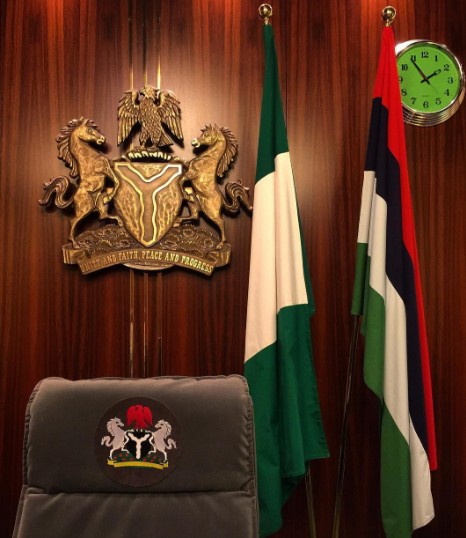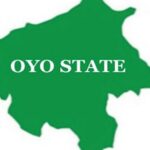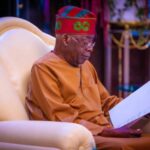On his short tour of Kuje Correctional Centre, following an attack on the facility by members of the Islamic State in West Africa Province (ISWAP), during which hundreds of inmates escaped, President Muhammadu Buhari could not hide his disappointment with the whole system of security intelligence in the country.
And his words were appropriately probing. “How did the defences at the prison fail to prevent the attack? How many inmates were in the facility? How many of them can you account for? How many personnel did you have on duty? How many of them were armed? Were there guards on the watchtower? What did they do? Does the CCTV work?”, the President queried, and said at the end of his speech that he will be expecting “a comprehensive report” on the incident. But Buhari’s brief outing that day illustrates almost all that is wrong with his administration in the past seven years.
He was there as Nigeria’s President, but spoke unlike a president. All the questions the President raised were absolutely valid, but he raised them to no one in particular and received no response from anyone in particular. And if previous experience of this government were any guide, and it is, no one will be held responsible for such a massive breach of security. The Minister of Interior, Ogbeni Rauf Aregbesola, who, truth be told, has shown more interest in the political affairs of his home state than his job description at the ministry, will remain in post. The Controller General of Nigerian Correctional Service, Haliru Nababa, at whose watch there has been more prison breaks than at any time in living memory, will also remain in post. The President will neither issue nor demand sanction of any kind on this, and the government will simply lurch on to the next disaster waiting to happen.
The above description is essentially Buhari’s model of political leadership. He gives power and authority to appointees, but demands almost nothing of them in return: not performance, and not responsibility for non-performance. Sanctions—resignation or the sack—have therefore little place in his system. It is this model of government, this government without governing, this conferral of authority on persons without a corresponding demand for responsibility and accountability, that has brought President Buhari, and the country he leads, to where we are now in Nigeria.
The economy is in a tailspin as illustrated by a biting fuel scarcity, a currency not worth the cost of printing it, and rising prices of all goods and services, even as incomes and jobs dwindle. We understand that Nigeria’s economy is not immune from the global economic challenges being faced all over the world, but this government can do and needs to do more to assure citizens that things would get better. As it is, Nigeria is on its knees, and Nigerians can testify, and have testified, that they have never had it worse in every respect.
We feel compelled to point out to the President, since his advisers will not tell him, that almost all his achievements in government across all sectors are now being completely eroded even before he leaves office. His signature anti-corruption agenda, which scored considerable early gains, is now effectively in the doldrums. Does anyone really remember that President Buhari was once an anti-corruption champion? Life without fuel scarcity, which Nigerians witnessed for the best part of this government, has now been replaced with a biting scarcity of petroleum products of the sort Nigerians have scarcely known before, even as subsidy bills and borrowings have ballooned through the roof and beyond national capacity to repay.
Inflation, of food particularly, and overall, both of which the government managed to bring under control following two recessions, is now on the rise again and has reached levels never witnessed before. The government’s defeat of Boko Haram, technical or otherwise, is now no more than a victory recorded too early. Nigeria, it must be said, is now effectively back to where the President took it over in 2015, only much, much worse off.
Of all these woes, the security situation bears repeating. The attacks by bandits on the President’s own advance convoy in Katsina last week is directly symbolic of how bad things have turned. That bandits would dare attack the convoy of Nigeria’s Commander-in-Chief of the armed forces, and shortly after killing an otherwise brave police officer, is a loud enough statement, if any were needed, that no one is safe in Buhari’s Nigeria. But the fact is that while in the past five years or so when the government had waxed upbeat over its “successes” in the fight against Boko Haram in the North East, millions of Nigerians in the North West and parts of the North Central states have lived under a security situation that in reality, if not in recognition, has been just as deadly a form of terror as Boko Haram ever was.
The President and the government just didn’t pay enough attention to it. And on top of that, Boko Haram now appears to have returned in full scale, with attacks on soldiers and security formations fast assuming a regularity that should compel the government to act quickly. Where is the action? Where is the empathy? And where is the government? Nigerians have a right under the constitution, and indeed, by any understanding of democratic governance to expect all of these from their own government. But again, if experience is any guide, they are unlikely to get any of it. And that too must be said.

 Join Daily Trust WhatsApp Community For Quick Access To News and Happenings Around You.
Join Daily Trust WhatsApp Community For Quick Access To News and Happenings Around You.


